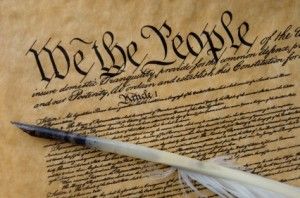Recently I came across this article, which discusses the practice of “Parallel Construction,” which is when a person of group creates an alternate investigative path to cover how a case initially came to be. This is a practice that has never been truly tried in court. However, recently it has become more of a questioned issue,  since Reuters this week reported that agents are told not disclose any case information received from the the U.S. Drug Enforcement Administration, or DEA. Instead, agents are instructed to recreate the information to appear similar, but by other means.
since Reuters this week reported that agents are told not disclose any case information received from the the U.S. Drug Enforcement Administration, or DEA. Instead, agents are instructed to recreate the information to appear similar, but by other means.
The specific unit of the DEA that is posing an issue is the Special Operations Division, or the SOD. This division acquires information via intercepts, wiretaps, phone records and other various means. Agents interviewed have disclosed the use of parallel construction in their cases, for example, staging what appeared to be a routine traffic stop and discovering reasons for suspicion, when in actuality, the stop was due to an informative tip from the SOD.
This is what defense lawyers have an issue with. In hiding information pertaining to a case, the government is violating the rights of the defendant given to them by the constitution. This hidden evidence may be crucial in proving the innocence of the defendant, if not just providing more information that may help their case. When used, the “parallel construction,” tales are not disclosed in court, which is another issue according to defense lawyers. Since the court is not aware of the origin of the case, it may completely change their perception of the information and situation they are dealing with, possibly affecting the outcome of the case. Evidence is purposely being hidden, and defense lawyers are not happy about this.
Ever since 1963, with the ruling of the Brady vs. Maryland case, the court has maintained that prosecutors are responsible for revealing any information that they or the police have that contributes to the ascertaining of the defendant’s guilt or innocence to said defendant before their trial. This “Parallel Construction,” practice contradicts this, but the DEA officials claim that this practice is not only legal, but imperative in protecting the confidentiality of their sources and investigative practices.
Another issue with this practice is that defense lawyers in cases such as these are not aware of instances in which the SOD contributed tips or evidence too, so that cannot make proper allegations or arguments surrounding this practice, potentially making their case much weaker.
I thought this article was extremely interesting because it makes us aware of the potential challenges we are facing as criminal defense lawyers in certain types of cases, but also suggests the importance of having an intelligent, capable, well-practiced defense lawyer on your case as the defendant. With so much going against you, it is important that you hire the best of the best to defend you in your case, especially when there is the possibility of the government concealing evidence that could help your case. Similarly, it will be interesting to see where this issue goes in the future in terms of rights of the defendant in these cases and what will be allowed in concealing vs revealing the origin of the case.

